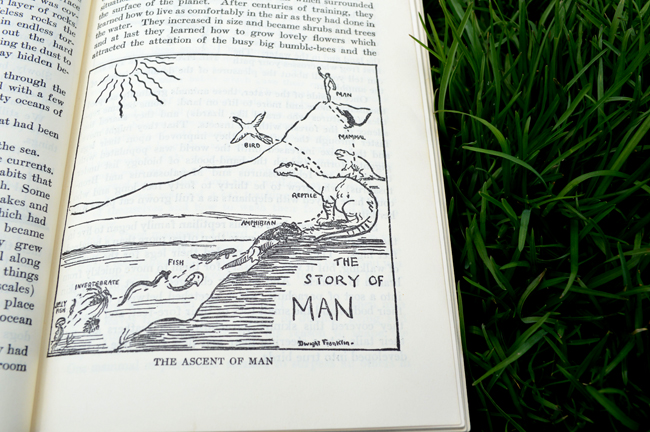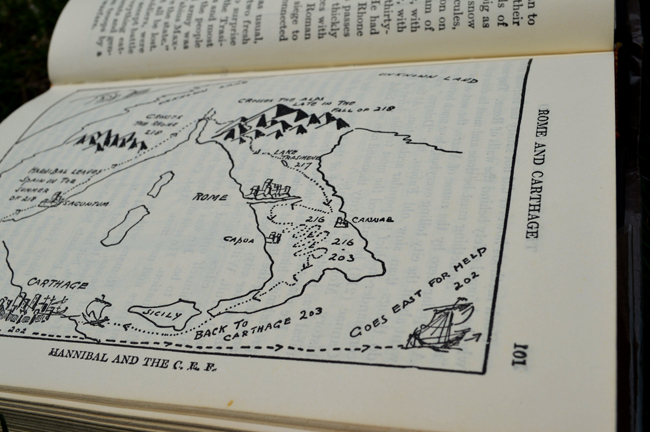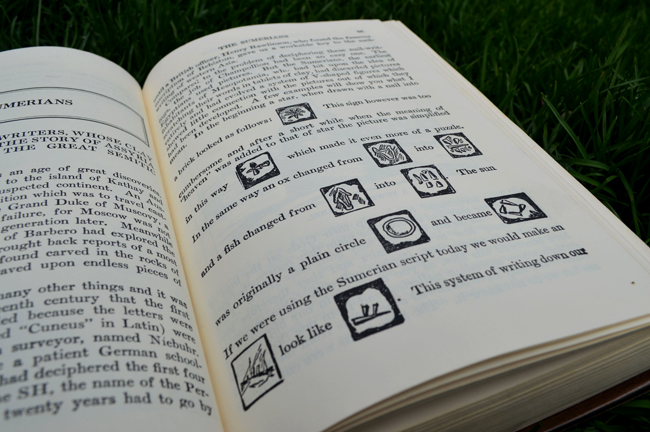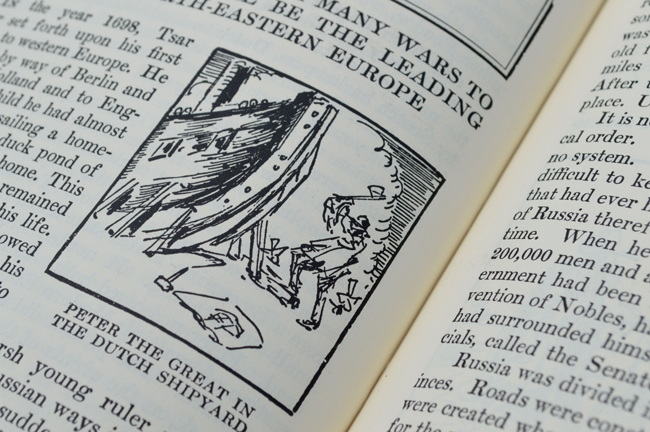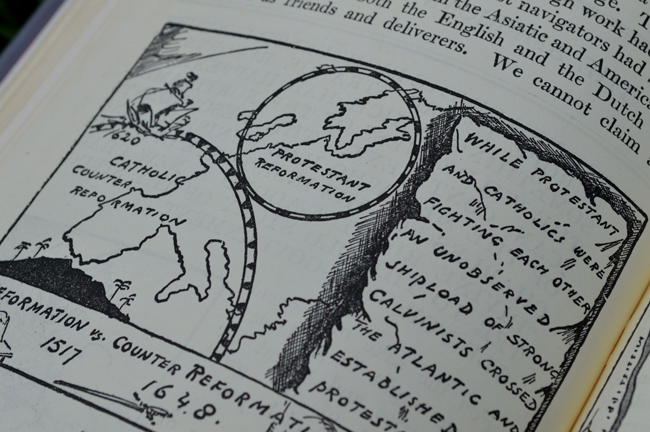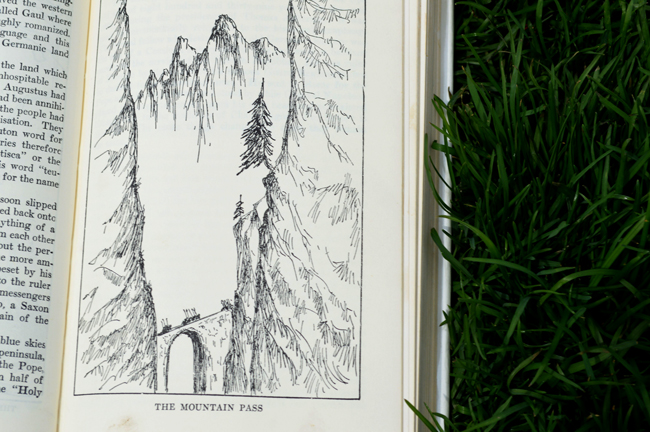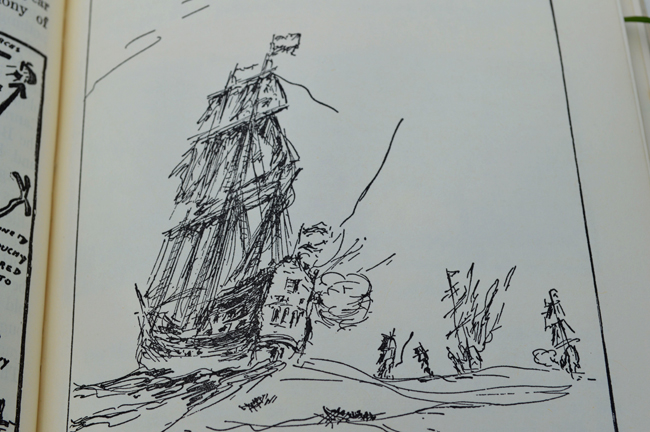The first Newbery winner from 1922 came as somewhat of a surprise to me, for my review the Newbery project. I think my working definition of Newbery winners was something like: a really great novel by an American, for kids between 10 and 12, but enjoyed by older and younger audiences as well. But Hendrik van Loon’s book The Story of Mankind is not a novel; it’s a history book. He’s not American; he’s from Holland. And it would take a pretty dedicated 12 year-old to get through it because of length and content. So it turns out my working definition of the criteria to be a Newbery winner wasn’t all that accurate.
Of course, the actual Newbery criteria dictate that the book be published by someone working in America and be a contribution to children’s literature. So a really thorough and readable book of World History published by this Dutch-American fits those criteria. And, this also means that I am a bit more qualified to review this book, having been a history major and also having an MA in history myself.
What I liked. First, the great parts of van Loon: his personality comes through in the book. He has hand-drawn maps, diagrams, and little pictures throughout. He has funny asides, anecdotes, and opinions about what matters. It’s like being in a history class with a funny professor who draws on the board and interjects stories into his lectures.
Also, it has a really big scope (it’s supposed to be the whole history of ALL the world) but it moves along, for the most part, with short chapters that let you see the connections between one part of the world and people who were important during one era to the next set of people and places in power following them. As someone who has spent a significant amount of time reading rather boring history books, I appreciate the readability of the text. (Well, readability for a 30 year old, less so for a 10 year old.)
What was interesting. My favorite part of the book is the language work van Loon did. He explains how hieroglyphs worked, and the etymologies of some of our words. (Like how “tragedies” comes from the dramas that sprang out of parades where men used to dress up like goats for Dionysus, so the word means goat-singer. p. 71)
What were some limitations. Well, it’s a book from the 20s…so obviously the last 90+ years are missing. And I don’t mean just because there isn’t a description of World War II, I mean the emphasis that the civil rights movement and second wave feminism and postmodern thinking have brought to history. So it’s a book that has a lot of positivism, orientalism, racism, classism, and patriarchy in it. It is a history heavy on “Great Men” from the West. The interesting thing about van Loon is that when he was directly addressing a particular society, let’s say the ancient Greeks for example, he was fairly even handed about the good, the bad, the ugly. But later when he’d make references to the Ancient Greeks, they sort of flattened out into this stereotype of the perfect balanced ancient civilization everyone was trying to return to. Also, it’s really, really long for a kids book.
Why do I think it’s a Newbery. I think that it is a remarkably narrative approach to history, and that it would be useful (especially in small chunks, like a chapter a week) as something that really puts an emphasis on why historical events happened in the order and location that they did. It’s super impressive, and I think it took him several years to compile.
Similarity to other Newbery winners. Well, obviously, I’m limited in my scope on this, but I would guess that we’re going to see the Newbery committee liking other historical works, although probably in the form of a historical novel.
What it teaches me as a writer. I think that The Story of Mankind encouraged me to balance complexity and straight-forward story telling. History is very complex, filled with details, but Van Loon navigates them well, creating his narrative that doesn’t drown in details. I want to have stories that are rich and complex, but I also want to have stories that get to the point.
Do you have thoughts about The Story of Mankind? Or what are your favorite kinds of history books?


